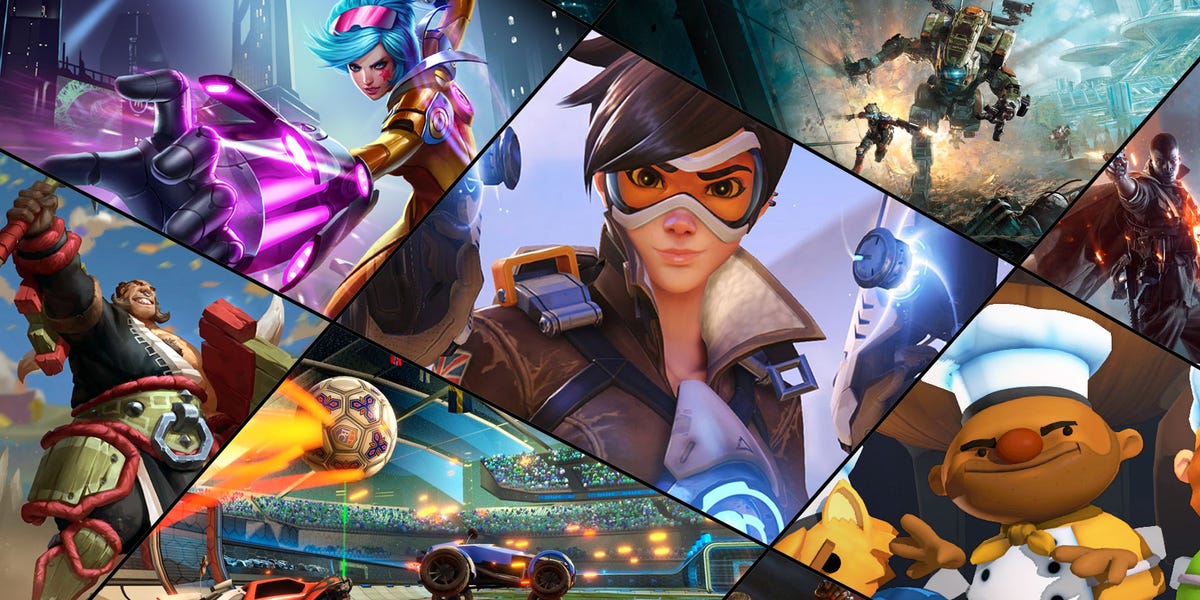News Blast
Your daily source for the latest news and insights.
Multiplayer Mayhem: When Friends Become Frenemies
Dive into the chaotic world of multiplayer games where friendships clash and rivalries ignite! Discover the thrill of friendly competition!
The Fine Line Between Fun and Frenzy: Navigating Friendships in Multiplayer Games
Multiplayer games have the unique ability to bring people together, forging connections that span continents. However, the essence of these interactions can often fluctuate between fun and frenzy. To strike the right balance, it's crucial to establish clear communication guidelines with friends to avoid misunderstandings. Setting limits on in-game competitiveness, agreeing on playstyles, and maintaining an open dialogue can help keep the experience enjoyable rather than overwhelming. When players are on the same page, the camaraderie and laughter can thrive, enhancing the overall gaming experience.
Nonetheless, even in the most tightly-knit groups, conflicts can arise. To navigate these turbulent waters, it's important to recognize the signs that the atmosphere is shifting from fun to frenzy. If frustrations mount and banter turns into bickering, players should take a step back. Implementing strategies like rotating game leaders or agreeing to take breaks after intense sessions can help manage tensions. Ultimately, the goal is to foster a positive environment where friendships flourish amidst the thrill of multiplayer gameplay, ensuring that the joy of gaming does not become overshadowed by chaos.

Top 5 Games That Turn Friends into Frenemies
Friendship can take a twisted turn when competition heats up in the gaming world. Here are the Top 5 Games That Turn Friends into Frenemies:
- Mario Kart - This iconic racing game turns friendly races into bitter rivalries with its chaotic power-ups and surprise elements. Nothing says betrayal like receiving a blue shell just before crossing the finish line!
- Catan - In this classic board game, players build settlements and trade resources, but optimal strategies often lead to sneaky alliances and quick backstabbing. The road to victory is paved with *deceit*!
As friendships are tested, these games prove that competition can reveal true colors. Keep your friendships intact with these fun options that might just expose your friends' darker sides:
- Among Us - In a game where you can turn on your friends in the name of survival, the foundation of trust is shattered as you find who is truly an ally and who is a traitor!
- Super Smash Bros. - Battling your buddies can bring out intense rivalries, especially when a well-timed spike sends your friend flying off the stage!
- Risk - World domination requires strategic planning and often leads to betrayal. Watch your back; your closest friends could easily become your fiercest enemies!
How to Keep the Peace: Strategies for Friendly Competition in Multiplayer Gaming
Multiplayer gaming can foster a sense of camaraderie and fun, but it can sometimes lead to rivalry and tension among players. To keep the peace during competitive play, it's essential to establish a baseline of mutual respect and sportsmanship. One effective strategy is to create clear communication guidelines. Encourage players to voice their concerns and feelings openly, while also practicing active listening. This not only helps in resolving conflicts but also strengthens relationships among players.
Another valuable approach is to promote a spirit of friendly competition. Consider implementing systems such as team challenges or rotating game roles, where players can experience different perspectives. Additionally, setting up a reward system for good sportsmanship can motivate participants to uplift each other, rather than focusing solely on winning. Remember, the main goal of multiplayer gaming is to enjoy the experience together; by following these strategies, you can cultivate an environment that fosters fun and collaboration.